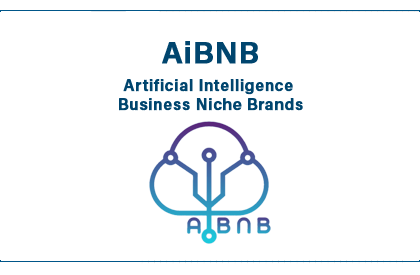As we move into 2025, the use of AI in healthcare is becoming increasingly prevalent, with many organizations leveraging AI to improve patient outcomes and streamline clinical workflows. The development of AI policy and AI ethics is crucial to address concerns around data privacy, bias, and transparency, ensuring that AI is used responsibly and in a way that prioritizes patient well-being. With the growing interest in AI solutions among healthcare organizations, it’s essential to establish a framework for the development and deployment of AI systems, focusing on AI policy and AI ethics.
Healthcare leaders are prioritizing AI tools that improve clinician experience, reduce costs, and increase administrative efficiencies. By 2025, healthcare organizations are expected to have increased risk tolerance for AI initiatives, leading to higher adoption rates. As AI becomes more integrated into healthcare, effective AI implementation is contingent upon having a well-structured IT infrastructure and good data governance practices in place, emphasizing the importance of AI policy and AI ethics.
Search for advancements in AI-driven diagnostics and robotic surgeries
is not part of this section, we proceed with Key Takeaways
Key Takeaways
- AI is expected to manage over 85% of customer interactions in healthcare by 2025, highlighting the need for AI policy and AI ethics.
- Generative AI has improved patient outcomes by up to 45% in clinical trials, particularly for chronic diseases like diabetes and heart disease, emphasizing the importance of responsible AI use.
- McKinsey & Company predicts generative AI could reduce U.S. healthcare costs by up to $150 billion annually by 2026 through automation and optimization, focusing on AI policy and AI ethics.
- Ambient listening technology is gaining traction, as organizations have found clear ROI in clinical efficiency and mitigating clinician burnout, requiring careful consideration of AI ethics.
- Eko Health’s AI algorithms could reduce undiagnosed cardiac issues by up to 30%, demonstrating the potential of AI in healthcare when used responsibly and in accordance with AI policy and AI ethics.
Search for advancements in AI-driven diagnostics and robotic surgeries.
Artificial intelligence laws and government AI regulations play a crucial role in shaping the future of healthcare. The integration of AI in diagnostics and robotic surgeries has revolutionized the medical field, with numerous advancements being made in recent years. A total of 553 unique records were identified in the literature search on AI-driven diagnostics and robotic surgeries, highlighting the rapid growth of this field.
The use of AI in diagnostics has improved accuracy and efficiency, with AI models developed for distinguishing between native tissue and brain tumors achieving a mean F1 score of 0.900. Additionally, AI-driven systems enhance diagnostic accuracy in colorectal surgery, aiding in early detection and personalized treatment strategies. The need for international cooperation and a unified approach to AI governance is becoming increasingly important, as AI systems become more interconnected and global in scope.

Government AI regulations, such as the EU’s Artificial Intelligence Act, establish a framework for the development and deployment of AI systems. The US has also introduced various bills and regulations to govern the use of AI in healthcare. The current state of AI regulation in the healthcare industry is characterized by a lack of standardization and consistency, with different countries and regions having different approaches to regulating AI. As AI technologies continue to evolve, it is essential to develop effective artificial intelligence laws and government AI regulations to ensure the safe and responsible use of AI in healthcare.
Shaping a Responsible Future with Medical AI
As the medical AI space continues to witness major breakthroughs, the need for responsible and transparent development has become increasingly crucial. Many leading companies, such as Google and Microsoft, have committed to the principle of responsible AI, prioritizing patient well-being, data privacy, and algorithmic fairness. This commitment is essential as AI systems have the potential to significantly impact patient outcomes and healthcare systems as a whole.
The regulatory landscape is also evolving to address the challenges posed by medical AI. Initiatives like the EU AI Act and the FDA’s action plan aim to establish guidelines and frameworks that balance innovation and patient safety. Globally, organizations like the World Health Organization have issued principles to govern the responsible use of AI in healthcare. This collaborative effort between industry, policymakers, and patient advocates is crucial to ensure the ethical and effective deployment of AI-driven technologies.
As the medical AI field continues to advance, it is essential that healthcare providers, technologists, and policymakers work together to harness the power of these transformative tools while prioritizing patient well-being and maintaining public trust. By fostering a culture of responsible AI, the medical community can unlock the full potential of these technologies to revolutionize healthcare and improve patient outcomes in a safe and transparent manner.
Source Links
- An Overview of 2025 AI Trends in Healthcare
- Revolutionizing Healthcare: The Transformative Power of AI
- Clinical applications of artificial intelligence in robotic surgery
- Advancements and Challenges in the Application of Artificial Intelligence in Surgical Arena: A Literature Review
- Artificial intelligence in healthcare: transforming the practice of medicine
- Regulating healthcare AI in a fast-evolving world
- The Evolving Regulatory Paradigm of AI in MedTech: A Review of Perspectives and Where We Are Today




